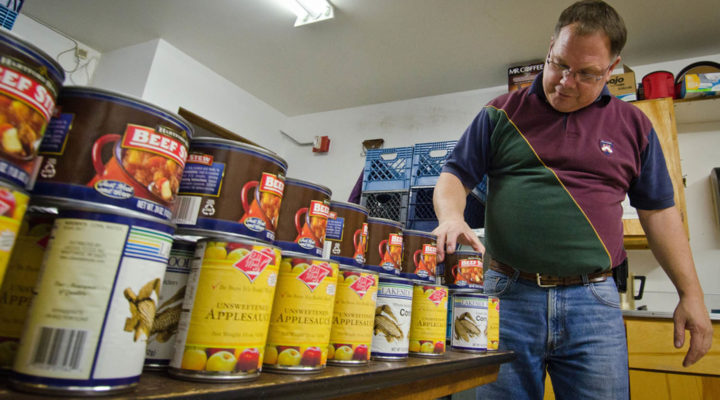Combating hunger in the United States is a big job — but Christian leaders have identified two main strategies for that fight.
And they know that when the victims of hunger involve young people, the motivation and creativity brought to bear can be powerful.
One avenue of attack — social ministries like food pantries and summer food programs for students — help solve needs for families who face the greatest needs.
But advocates also hope to reduce future hunger needs by working in political systems. Without such advocacy, church food pantries and other charitable groups may find themselves overwhelmed by community needs as legislators make changes to social safety-net programs.

Zachary Schmidt
Zachary Schmidt serves as a regional organizer for Bread for the World, a nonpartisan Christian advocacy group that has for more than 40 years advocated to end hunger.
“Of all the millions of low-income children in the U.S. who receive free or reduced-price meals during the school year, only one in six of them receive a federally subsidized meal during the summer,” said Schmidt, who leads the ministry’s organizing efforts in Missouri, Illinois, Minnesota and Wisconsin.
When children don’t have enough to eat, especially when they’re not in school, the entire family can suffer financially.
“Food pantries report that the demand for assistance increases during the summer months, as we would expect, because children are not receiving school meals,” he said.
Kasey M. Ashenfelter, director of communications for the Texas Hunger Initiative at Baylor University, said summer is the most difficult time to combat hunger.
“Being out of school brings extra financial challenges for families as schedules have to be coordinated and childcare has to be arranged,” Ashenfelter said.
He said the federal Summer Food Service Program is designed “to help families overcome the financial challenge associated with nutrition, especially in communities where the majority of children qualify for free and reduced meals.”
However, few eligible families participate in the program. Only about 12 percent of eligible students receive the summer meals in Texas. Low participation — and thus fewer students receiving meals — comes from lack of awareness, limited access and other obstacles, Ashenfelter said.
“Christians can help in a variety of ways,” he added. “They can volunteer at summer meal sites — help serve meals or provide enrichment activities. They can encourage congregations or nonprofits to host a summer meals site, specifically if they are located in an area without one.”
Becoming advocates
Ashenfelter also pointed to advocacy as one way Christians can help food-insecure homes. The Texas Hunger Initiative collaborates with agencies and congregations across the state and is always looking for new partners.

Working through government is an important way to combat poverty and hunger. (Creative Commons photo by Iowapolitics.com)
“Food insecurity is a very real problem facing every state and community, and Christians can be at the frontline of change, helping to raise awareness of the problem and push elected officials to action and solutions,” he said.
Schmidt also urges Christians to become advocates for their hungry neighbors.
At Churchnet’s annual gathering at First Baptist Church in Lee’s Summit, Mo., in April, Schmidt co-led a breakout session with Doyle Sager, senior pastor at First Baptist Church in Jefferson City, Mo., on how to advocate on hunger issues. More recently, Schmidt noted some of the key legislative efforts he and his colleagues at Bread for the World are tracking.
“Many states have piloted innovative projects to reach more children during summer breaks,” Schmidt said.
These include mobile summer meal sites, backpack programs and additional money for families to buy groceries, he said.
“We want Congress to provide the flexibility and support for states to operate programs and services that best meet their children’s needs,” he said.
Schmidt said he hopes Christians will “advocate for these bills and for these kinds of changes by writing, calling, emailing and visiting their members of Congress and encouraging them to protect and strengthen provisions for summer meals.”
The hope is that such advocacy can make a difference for children living in food-insecure homes.
“Congress can do something about this problem this year, and Bread for the World and our members and congregations across the country are encouraging them to pass legislation that connects hungry kids with healthy meals,” he said.


